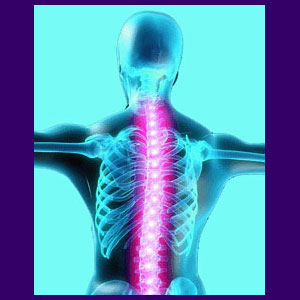
Neuropathy, also called neuralgia, is a general term for pain or disease which affects the neurological structures of the body. When it comes to back pain, you hear this term often associated with a wide range of possible causative diagnoses. Sciatica and pinched nerves are certainly the most common instances of diagnosed neurological pain, while other less common examples, such as piriformis syndrome and thoracic outlet syndrome are gaining more momentum in the treatment sector year over year.
Nerve pain is certainly one of the most difficult back ache issues to accurately diagnose and treat.
Neuropathy Conditions
Nerves are the most sensitive of all organic tissues. They are easily damaged through trauma, disease and various problematic processes which can occur throughout the body. Nerves are also some of the slowest tissues to regenerate to full function once injured. Some nerve damage can never be fully healed and might leave permanent functional limitation.
Despite the delicate nature of nerve tissue, it is still rare to suffer nerve damage in the back due to many of the common suspect culprits, such as typical herniated discs and arthritis in the spine. While it is possible that these spinal abnormalities might enact radicular pain is some unfortunate individuals, other cases are obviously misdiagnosed, since the symptoms do not fit the clinical profile of the suspected condition.
In many patients, neuropathy symptoms are too diverse to come from the theorized source, while in others the pain is simply in the wrong location altogether. This is why patients must understand their conditions or potentially fall victim to the common incidence of mistaken diagnosis.
All inconsistencies in symptomatic expression should be further investigated to locate their actual source before treatment begins.
Ischemic Neuralgia
Oxygen deprivation is one of the most prevalent causes of chronic back pain, yet it one of the least often diagnosed. When nerve tissue is deprived of oxygen, the results can be devastating. Generally, pain, tingling, weakness and numbness will all show up and these symptoms can truly be life altering.
Ischemia can result from a physical structural condition or disease process. There are many reasons for anatomically-induced ischemia to exist. Luckily, these can be easily discovered by your physician and treated successfully in most patients. The type of ischemia which is not typically diagnosed is the form which is purposefully enacted by a psychosomatic process. This is a rampant form of psychological back pain and the same type made world famous in the literary works of some of the premier professionals in the mindbody field of medicine today.
Neuropathy Experiences
In my own personal battle with horrific back pain, I was diagnosed with 2 herniated discs and degenerative disc disease as my main problematic concerns early in life. My agony was supposed to stem from nerve compression in my lower back which created pain and neurological symptoms in my entire lower body. This made perfect sense to me as a layman and I never questioned the diagnosis for many years. However, my desperation for a cure grew as the years passed and my pain worsened.
Eventually, my research led me to Dr. John Sarno of the NYU Medical Center in New York. Dr. Sarno taught me all about how ischemia is the root cause of some diagnosed nerve pain syndromes throughout the back and the body in general. Using the simple and easy program of knowledge therapy recommended by the good doctor, I was able to completely cure all my long standing pain. This was not only my own personal miracle, but also the start of my quest to help others overcome their debilitating back pain.
We have found many neuropathy patients who had little hope for a cure respond very well to our proprietary pain relief program. In fact, neuralgia sufferers report excellent results that last!




